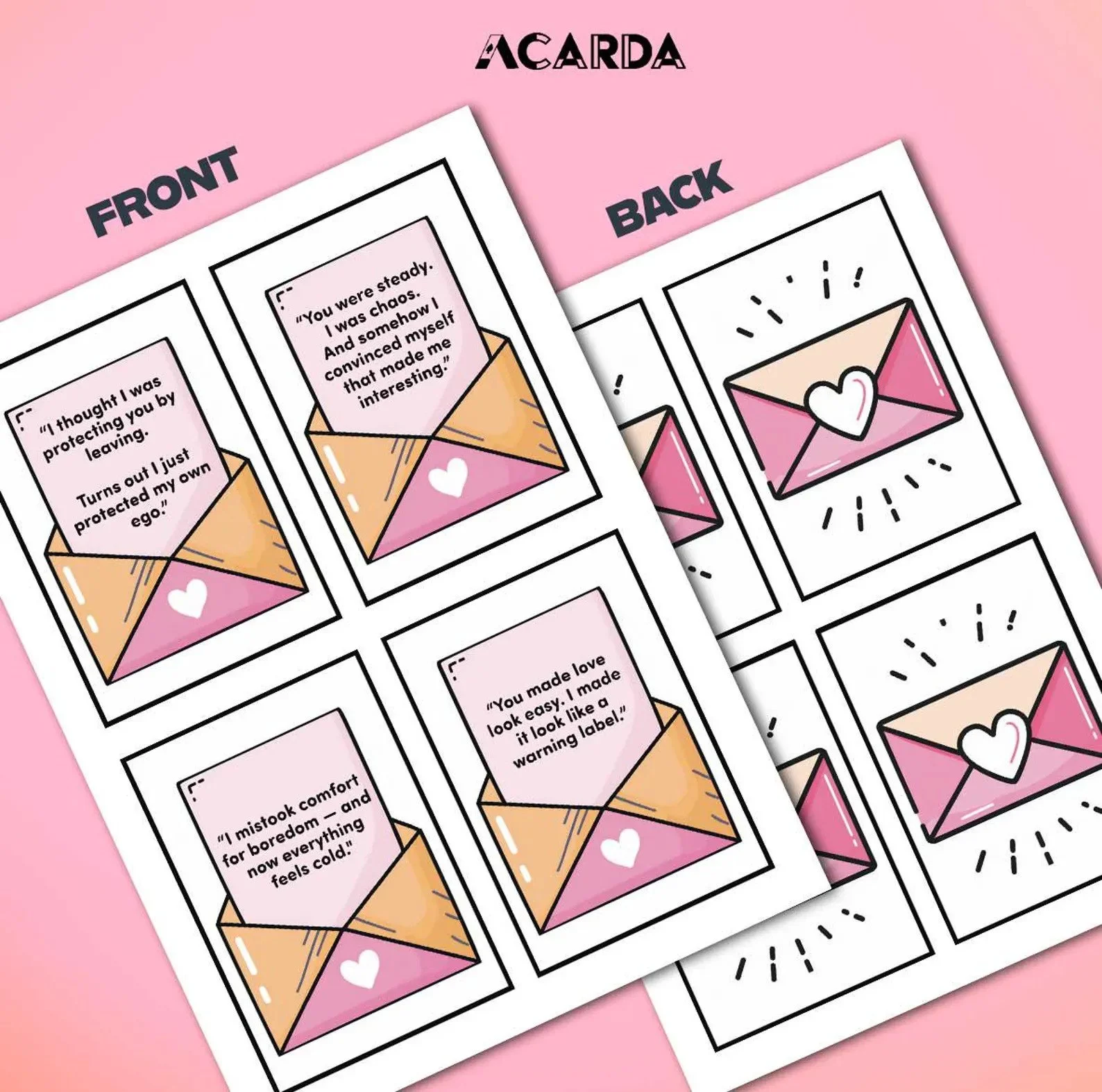Messages From Your Person Oracle Decks And Why They Keep Selling Out
Oracle decks come in endless flavors. Some tell you to love yourself. Some remind you that the moon exists. A messages from your person deck does none of that. It exists for one purpose only. To pretend your crush, partner, or ex finally said something out loud. Instead of re-reading their last text for the fiftieth time, you flip over a card. Suddenly, the silence has a script.
Why People Use Them
It is cheaper than therapy and faster than closure. People buy these decks because waiting for answers is intolerable. A card that says I miss you lands better than another three hours staring at a phone that will not buzz. A card that says I moved on hurts less than watching your ex’s vacation photos upload in real time. These decks are the modern fortune cookie. The message is short, sometimes comforting, sometimes brutal, and always timed to your emotional hunger.
The Marketing Works
Etsy has become a marketplace of endless “messages from your person” decks. Amazon carries them too. TikTok influencers hold them up in dim lighting and pull cards on camera like they are live-streaming someone else’s heartbreak. The business model is simple. Take the universal desire to know what someone else is thinking. Print it on cardstock. Repeat.
Tarot Versus Oracle
Tarot wants you to learn a system. Archetypes, symbols, spreads, reversals. A messages from your person deck does not care about symbolism. It goes straight to the point. No one needs to interpret what I am not ready for commitment means. The bluntness is the appeal. You do not need to consult a guidebook. You just need the ability to read English and withstand a small emotional slap.
What To Expect When Using One
Expect honesty, or at least the illusion of it. These decks usually speak in declarative sentences. I think about you at night. I am not who you believe I am. I should have said more. They read less like divination and more like intercepted text messages. The effect is addictive. One card feels too little. Three cards feel like a conversation. Suddenly, you are spending Saturday night talking to cardstock instead of sending a risky DM.
An Example Worth Trying
The messages from your person deck is a clean version of this idea. No vague symbolism. No heavy artwork to distract from the words. Just direct lines designed to hit with precision. Pull a card, read the message, decide if it soothes or stings. Either way, the job is done.
The Benefits
Ease of use. Instant gratification. No training required. Anyone can shuffle, pull, and react. The decks also work as conversation starters in group readings. They turn silent crushes into party games. For collectors, they provide another niche product to add to the shelf. For casual buyers, they are entry-level divination.
The Risks
The honesty can feel too sharp. Not everyone wants to see I am done in plain print. That is the trade-off. With no symbolism to cushion the blow, every card hits like an unfiltered confession. Quality also varies. Some decks are thoughtful. Others are rushed. When the barrier to self-publishing is low, you get both gems and disappointments.
Who Buys Them
Anyone circling the black hole of modern dating. People who would rather consult a deck than text an ex. Readers who want quick answers without twenty minutes of tarot spread interpretation. Professionals who add them to their readings for dramatic effect. The appeal is broad because the need is universal. Everyone wants to know what the other person thinks but will not say.
The Psychology
The cards work because they mirror back what people already suspect. If the card says I need space, you probably knew that already. If the card says I want you back, you probably wanted to hear it. The deck is not magical. It is a mirror with a sharper tongue.
The Criticism
Skeptics call them emotional crutches. They argue that people should just ask questions directly. Fair. But asking directly risks rejection. Pulling a card is safer. The stakes are lower. The criticism is not wrong, but it is irrelevant. These decks are not designed for skeptics. They are designed for people who prefer an elegant lie or a half-truth to the silence of unread messages.
The Business Side
Creators design these decks, upload them, and sell them to a captive audience. It is niche commerce at its finest. Print-on-demand keeps costs low. Buyers get the thrill of something specific. Sellers get a revenue stream. The cycle continues because heartbreak does not go out of fashion.
How To Use Them Without Losing Perspective
Use them as prompts, not prophecies. Pull one card when you are spiraling. Use three if you want structure. Combine with tarot if you want context. The key is to treat the message as reflection rather than gospel. If a card says I will call you, it may not be true. But your reaction will tell you what you actually want. That is the value.
Why The Trend Is Not Dying Soon
People will always want to know what someone else is thinking. Technology has only made that hunger worse. Social media provides constant partial information but never enough. Oracle decks fill the gap. They give answers without verification. For many, that is enough. The popularity proves it. The demand is not about accuracy. It is about relief.
The Bottom Line
Messages from your person oracle decks are not mystical solutions. They are cardboard confessionals. They sell because they answer the most common question anyone has about relationships. What does the other person feel. The decks are blunt, addictive, and oddly comforting. You will not find definitive truth in them, but you will find a temporary script for silence. Sometimes that is all people want.
